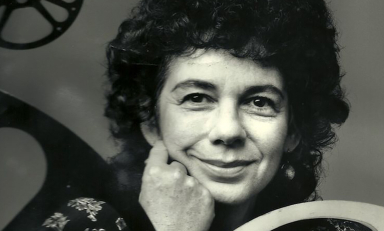A Los Angeles Times story, and the ensuing media melee, underscore the complexities of Clery Act reporting
From an institutional standpoint, Occidental has made significant progress in addressing the issue of sexual misconduct since the College made national headlines last spring. Since then, Oxy has hired a full-time Title IX coordinator and full-time survivor advocate; revised its policies and procedures; launched a 24/7 hotline; increased the amount of mandatory preventative education required of all students; and doubled the resources for Project SAFE (Sexual Assault Free Environment), its student-run advocacy and educational program.
What drew the media's attention this spring, however, was not Oxy's progress but the Los Angeles Times' decision to fire investigative reporter Jason Felch on March 14 for what it called "an inappropriate relationship" with a source at Occidental while reporting a series of stories about sexual misconduct at the College.
The decision to fire Felch was included in a March 14 Times editor's note with an extensive correction to the journalist's Dec. 7, 2013, front-page story, which alleged that Occidental had failed to report 27 cases of sexual assault in 2012. A detailed presentation by the College's communications consultants, G.F. Bunting+Co., convinced the Times that a correction was necessary. The news of Felch's "inappropriate relationship" came as a surprise to the College's leadership, according to director of communications Jim Tranquada. "Some people seem to regard the Times' correction as somehow suggesting that sexual misconduct is not a problem at Oxy," he adds. "It is, however—as it is on every college campus. What this episode demonstrates is how complex an issue it can be."
The Times' allegation of 27 unreported cases was derived by subtracting the number of sexual assaults reported in Occidental's annual Clery crime report for 2012 from a total of 34 reported cases of sexual misconduct tracked internally by the College—a number used in earlier campus discussions of the issue.
Here's where the math gets complicated: The federal Clery Act requires that reporting be done on a calendar year basis—that is, from January 1 to December 31. The 34 cases cited by the College were from the 2011-12 academic year—from late-August 2011 to mid-May 2012. Furthermore, more than half of the 34 cases involved allegations of sexting, indecent exposure, or harassment—categories not defined as reportable under the Clery Act. Others took place outside the Clery Act's carefully defined geographic reporting areas, which include the campus, immediately adjacent streets and sidewalks, and off-campus properties owned or controlled by the College.
Regardless of the complexities of Clery reporting, it's important to note that in each of the 27 cases, the College conducted a follow-up investigation when it had sufficient information to do so, Tranquada says.
From August 2009 through December 2013, the College received 24 complaints of sexual assault and non-consensual sexual touching. In two instances, the complainant declined to file a formal report; of the other 22, 21 were investigated and 18 went to hearing. (In two cases, respondents admitted to the conduct during the investigation; in the third case, the respondent withdrew before a hearing could be held. One case was not investigated because the respondent admitted to the conduct before the investigation started.)
Respondents in 16 cases were found responsible for sexual misconduct ranging from sexual harassment and non-consensual touching to non-consensual intercourse. In nine of these cases, respondents were expelled. The other seven cases in which respondents were found responsible resulted in various combinations of suspension, probation, letters of apology, forfeiture of campus positions, prohibition against engaging in campus activities, community service, and educational sanctions. These were cases decided under the old policy, Tranquada notes. Under the new interim policy, the range of sanctions has been narrowed, an area that will be subject to further review.
What's next? The College is still awaiting the results of two investigations launched by the U.S. Department of Education last year in response to complaints that Oxy mishandled sexual misconduct cases and underreported the number of sexual assaults on campus. In addition, attorneys Gina Smith and Leslie Gomez—outside experts hired by the College last spring—are expected to deliver their evaluation of Oxy's handling of sexual misconduct this summer. "Addressing sexual misconduct is an urgent priority for us," Tranquada says. "The additional input we expect in the months ahead will only sharpen our efforts to ensure a safe campus for all our students."



